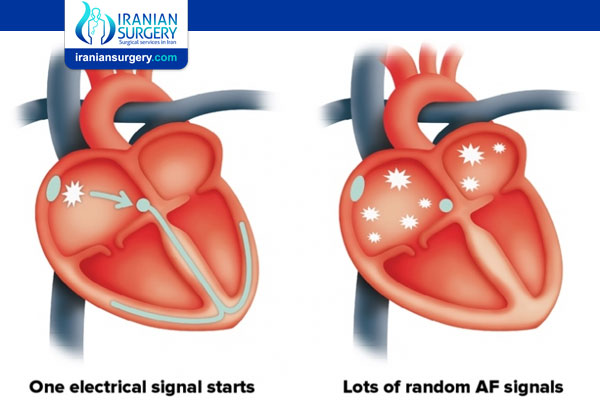Heart arrhythmia causes
What causes heart arrhythmia?
How serious is a heart arrhythmia?
What causes heart arrhythmia?
Any interruption to the electrical impulses that cause the heart to contract can result in arrhythmia.
For a person with a healthy heart, they should have a heart rate of between 60-100 beats per minute when resting.
The more fit a person is, the lower their resting heart rate.
Olympic athletes, for example, will usually have a resting heart rate of under 60 beats per minute because their hearts are very efficient.
Read more about : Iranian eye surgeons restored vision to the eyes of an Omani child.
Read more about : Coronary artery bypass surgery (CABG) success story
A number of factors can cause the heart to work incorrectly, they include:
- A heart attack that's occurring right now
- Scarring of heart tissue from a prior heart attack
- Changes to your heart's structure, such as from cardiomyopathy
- Blocked arteries in your heart (coronary artery disease)
- High blood pressure
- Overactive thyroid gland (hyperthyroidism)
- Underactive thyroid gland (hypothyroidism)
- Smoking
- Drinking too much alcohol or caffeine
- Drug abuse
- Stress
- Certain medications and supplements, including over-the-counter cold and allergy drugs and nutritional supplements
- Diabetes
- Sleep apnea
- Genetics
Read more about : Heart pacemaker surgery
Read more about : Closed heart surgery
Read more about : Heart Bypass Surgery
Read more about : Open heart surgery
What is the basic cause of arrhythmia?
Arrhythmias may be caused by many different factors, including: Coronary artery disease. Electrolyte imbalances in your blood (such as sodium or potassium). Changes in your heart muscle.
Other things that can cause an arrhythmia include:
- Drinking too much alcohol or caffeine.
- Drug abuse.
- Stress or anxiety.
- Certain medications and supplements, including over-the-counter cold and allergy drugs and nutritional supplements.

How serious is a heart arrhythmia?
An irregular heartbeat may feel like a racing heart or fluttering. Many heart arrhythmias are harmless. However, if they are highly irregular or result from a weak or damaged heart, arrhythmias can cause severe and potentially fatal symptoms and complications.
Read more about: heart arrhythmia causes
Read more about: Heart arrhythmia cure
Read more about : What is a Coronary Angiogram?
Read more about : Heart Pacemaker Surgery In Iran


